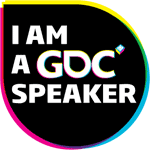The Science of Playtesting – GDC 2011 – Game UX talk coming up!
Posted in Conferences - Events on February 26th, 2011 by Veronica Zammitto – Be the first to commentGDC ’11 is just one day away!
This year I’ll be giving a talk at GDC on Game User Experience.
Here is the description:
The Science of Play Testing: EA’s Methods for User Research
Speaker: Veronica Zammitto (Electronic Arts)
Day / Time / Location: Thursday 9:00-10:00 Room 3006, West Hall 3rd Fl.
Track / Format: Game Design / Lecture
Description: Playtesting is an aspect of the game development process that is gaining more recognition. It contributes to a better understanding of gamers, and provides information to developers that in turn are transformed into design decisions. This talk focuses on the newest methods for identifying gamers’ emotions, attention, and in-game behavior. From the broad array of techniques in the User eXperience (UX) field, we will address scientific methods that have been employed at Electronic Arts for assessing player experience in a more objective, reliable, and continuous way, such as employing eye-tracking, psychophysiology, and telemetry.
Takeaway: Attendees will gain knowledge on: new game user experience techniques (eye-tracking, biometrics, telemetry), identifying the concrete information these techniques provide, assessing the suitability of these methods according to their needs, and how to capture an emotional profile and engagement level of players.
Intended Audience: This talk is intended to people involved or interested in gaming user experience and playtesting. There is no mandatory pre-requisite, but previous knowledge on playstesting techniques would be beneficial.
Eligible Passes: Main Conference Pass, All Access Pass of the Game Developers Conference.
Post Event Update: Here is link to the GDC’s Vault where you can find the presentation slide-deck:
http://www.gdcvault.com/play/1014552/The-Science-of-Play-Testing
Enjoy!
